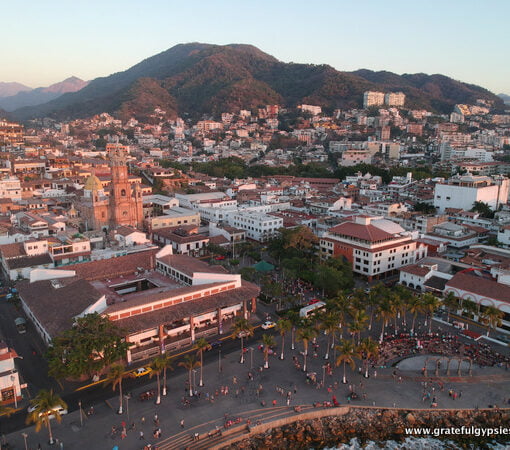Ana Caronia, de 26 años, y su novio, Nicolás Pustilnick, de 27, son dos de los cinco argentinos que lograron ser aceptados por la prestigiosa y selecta universidad de Harvard, en Estados Unidos, para cursar una maestría en Administración de Empresas (MBA, por sus siglas en inglés), en el año 2019. Cuando aplicaron pensaron que, tal vez, alguno de ellos podría pasar las pruebas de admisión. No imaginaron que lo harían ambos.
“Estábamos conformes con estar en la misma ciudad porque pensamos que sería difícil ser elegidos por la misma institución. Afortunadamente, se dio el mejor escenario posible”, dice Caronia y comenta que con su pareja se conocieron cuando trabajaban en la misma empresa, una consultora estratégica multinacional, hace casi cuatro años.
Desde la capital de Corrientes se fue a vivir a Buenos Aires después de terminar la escuela para estudiar Economía en la Universidad Torcuato Di Tella, tal como habían hecho sus dos hermanos mayores. Pustilnick también se recibió en la misma universidad, aunque como abogado.
Aunque Ana siempre supo que quería estudiar en una de las mejores universidades del mundo, en el transcurso de la carrera ese deseo se postergó, ya que priorizó tener una gran experiencia profesional antes de emigrar. Recién en enero de 2018 comenzó el proceso de solicitud para estudiar en Estados Unidos junto a su pareja.
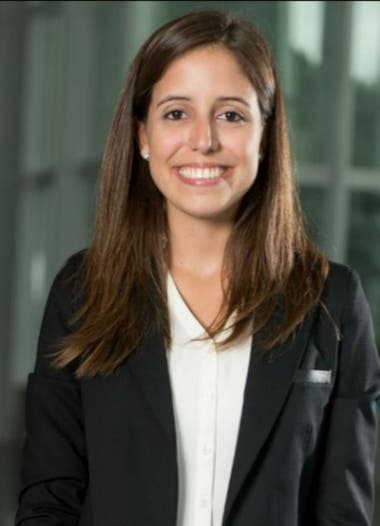
Por otro lado, Nicolás reconoce que una vez que terminó su carrera universitaria, planeó finalizar sus estudios académicos para dedicarse por completo al trabajo y crecer profesionalmente.
“Realmente nunca disfruté estudiando y es por eso que dudé en hacer una maestría. Comencé a cambiar de opinión cuando mi hermano y mis jefes de la empresa donde trabajaba compartieron sus experiencias. Todos tenían recuerdos positivos de sus estudios en el extranjero. Y hablando con graduados, me di cuenta de que Harvard era el lugar donde quería estudiar”, dijo.
La decisión de la especialización que eligió para él fue algo natural, ya que, aunque estudió derecho, durante años se ha dedicado a los negocios en el mundo corporativo.
Solicitud y selección.
Por otro lado, Nicolás reconoce que una vez que terminó su carrera universitaria, planeó finalizar sus estudios académicos para dedicarse por completo al trabajo y crecer profesionalmente.
“Realmente nunca disfruté estudiando y es por eso que dudé en hacer una maestría. Comencé a cambiar de opinión cuando mi hermano y mis jefes de la empresa donde trabajaba compartieron sus experiencias. Todos tenían recuerdos positivos de sus estudios en el extranjero. Y hablando con graduados, me di cuenta de que Harvard era el lugar donde quería estudiar”, dijo.
La decisión de la especialización que eligió para él fue algo natural, ya que, aunque estudió derecho, durante años se ha dedicado a los negocios en el mundo corporativo.
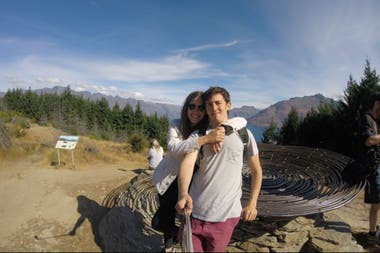
El primer día
Las clases comenzaron en agosto de 2019, pero fueron unos días antes para recorrer la universidad y amueblar el apartamento donde viven, que es propiedad de Harvard y está en el campus, a casi 200 metros de donde toman las clases.
La primera clase comenzó en un auditorio de la Escuela de Negocios de Harvard (HBS) con los 940 estudiantes de la clase MBA 2021. Ese día mostraron las secciones, grupos de 94 personas similares a las divisiones que se hacen en las escuelas. Esas 94 personas compartirán todas las clases, al menos el primer año, y tendrán un Presidente, un profesor dedicado a que todos se adapten y tengan una buena experiencia en su primer año.
“La sección es importante porque es imposible conocer a más de 900 personas. Es con las personas con las que más vas a compartir”, dice Ana. “Luego, en diferentes actividades conocerás a más personas, pero la sección es uno de tus grupos más cercanos”.
Cada sección está diseñada para que la contribución de cada uno de los 94 estudiantes pueda ser maximizada por el resto. “Es increíble cómo arman las secciones. Aseguran que sean lo más diversas posible en cuanto a nacionalidades, profesiones y experiencias de vida. Un bonito recuerdo del primer año es cuando cada estudiante cuelga la bandera de su país en el aula donde compartimos todas las clases. En cada sección suelen haber más de 30 nacionalidades”, describe la joven economista.
Metodología del caso
A diferencia de lo que sucede en Argentina, todas las clases en Harvard tienen la modalidad de debate. Y particularmente el MBA fue el primer programa en el mundo que incorporó esta variante: el profesor solo hace preguntas para moderar la discusión. Los estudiantes levantan la mano y cada comentario es evaluado por el profesor, quien tiene un asistente que toma nota de cada contribución.
La metodología del caso de negocios consiste en asistir a la clase con el caso leído, estudiado y con el correspondiente análisis, modelos y números.
En la clase hay 94 personas y el profesor sabe de cada estudiante de qué país es, a qué universidad fue, qué estudió y cómo fue su vida profesional antes de comenzar el MBA. Se toman y se escuchan diferentes puntos de vista, ya sea porque los involucrados tienen una nacionalidad o carrera diferente.
Nicolás en el primer día generó más ansiedad que Ana. Durante más de cinco años no había estado sentado en un aula con compañeros de clase para tomar una clase y no había estudiado tampoco. “Me parecía irreal que iba a estar alejado de la actividad profesional por dos años”, dijo Nico, agregando que el primer día fue “definitorio” para darse cuenta si se sentiría cómodo con la decisión que había tomado. Sus dudas se disiparon gracias a los discursos iniciales del director del MBA.
“Todos estaban muy conscientes de los miedos, de las cosas que estabas dejando de lado para estar aquí. Lo primero que te dicen es: Felicidades, sabemos el costo que están pagando por estar aquí. Y más que el costo económico se refieren a detener tu carrera profesional por dos años -cuando seguramente donde lo estabas haciendo iba bastante bien
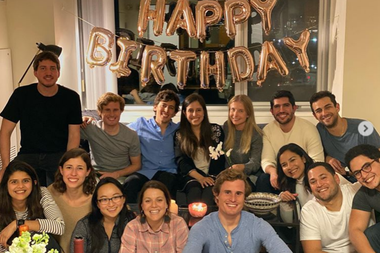
¿Volver a Argentina?
Ambos están de acuerdo en que les gustaría regresar, pero no están seguros de hacerlo a corto plazo ya que consideran atractiva la posibilidad de trabajar al menos una vez en Estados Unidos.
Aunque extrañan costumbres argentinas como salir con amigos, hacer asados, tener la familia cerca y la rutina, los planes de regresar inmediatamente después del MBA están casi descartados.
Pero Ana tiene claro que volverá porque aspira a contribuir a la innovación en la educación en Argentina. “Es un tema que me apasiona”, dice, y por eso decidió formar parte del HBS Education Club y asistir regularmente a charlas en la escuela de educación de la Universidad de Harvard, que está cruzando el río, al otro lado de la Escuela de Negocios.
¿Quiénes son los otros tres argentinos que hacen el MBA?
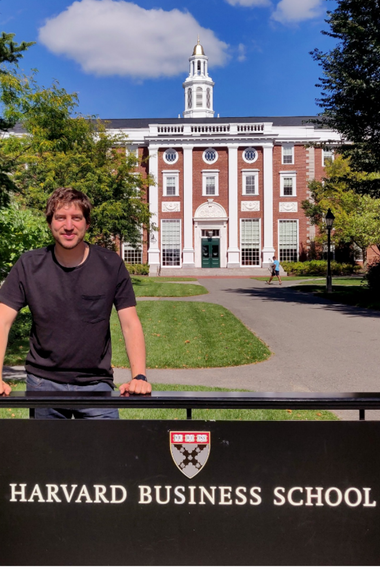
Thomas Bresler
Tiene 28 años y es de la Ciudad de Buenos Aires, del barrio de Belgrano. Estudió ingeniería industrial en el Instituto Tecnológico de Buenos Aires (ITBA). Trabajó durante los últimos cuatro años en Argentina en AB InBev, fabricante de cerveza mundial. Primero estuvo en el área de Marketing e Innovación Digital para la cerveza Patagonia y luego lideró la creación de Blasfemia, el primer vino enlatado de Argentina.
Decidió que quería hacer el MBA en Harvard a principios de 2018. Desde el primer momento quedó impresionado por las instalaciones del campus, la calidad de las clases y la capacitación de los profesores. Además, de acuerdo con la experiencia de Ana y Nicolás, le parece que conocer las experiencias de los compañeros es extremadamente enriquecedor.
“Es una clase muy diversa, donde cada uno tiene un trasfondo diferente según su nacionalidad, cultura, estudios previos e industria en la que trabajaban”, dice Tomás
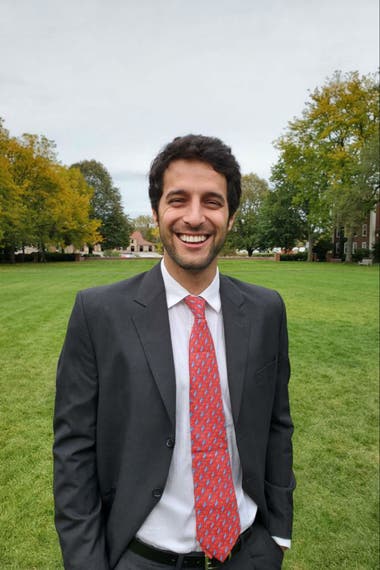
Yago Zavalia Gahan
Yago tiene 30 años, creció en Pilar pero fue a la escuela en San Isidro. Estudió Ingeniería Mecánica en el ITBA y hizo su carrera en Techint. Por su trabajo, vivió ocho meses en “Vaca Muerta”.
Antes de viajar a Boston para estudiar en HBS, trabajó en Tesacom, la principal empresa de comunicaciones móviles por satélite de la región, convirtiendo la red de Edesur, la distribuidora de energía eléctrica de Argentina, en una red inteligente.
En cuanto a la decisión de hacer un MBA, Yago dijo que siempre lo consideró como una opción porque no podía encontrar un trabajo que le gustara. Aunque le costó dejar su país, describe la experiencia como increíble.
Reconoce que en cuanto a sus compañeros de clase, llegó a la universidad con prejuicios: “Pensé que venía a una convención de aparatos, pero la verdad es que la gente es espectacular y me hice excelentes amigos. La gente es lo mejor de este lugar”
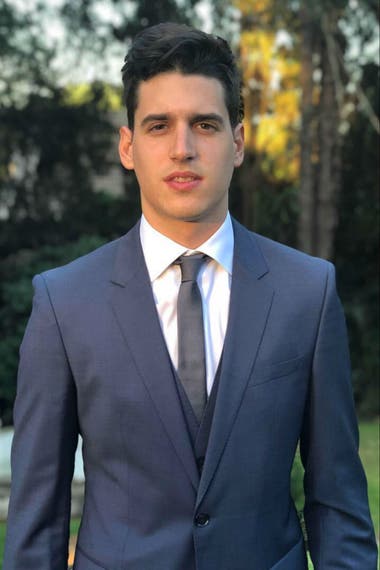
Fulvio Pagani
Él tiene 26 años y es de la ciudad de Córdoba. Estudió contabilidad en la Universidad Católica de Córdoba.
Antes de comenzar el MBA en Harvard, trabajó en Arcor, la principal empresa de alimentos de Argentina y el principal productor mundial de caramelos duros, y en la compañía financiera J.P Morgan.
“Siempre quise tener una experiencia en el extranjero y regresar al país con nuevas ideas y una visión global de los problemas que enfrenta la industria en Argentina”, dice a THE NATION.
En cuanto a la experiencia en Harvard, para él es “increíble”. “El nivel profesional e intelectual es único”, dice Córdoba, el argentino más joven en la Clase MBA 2021.”


